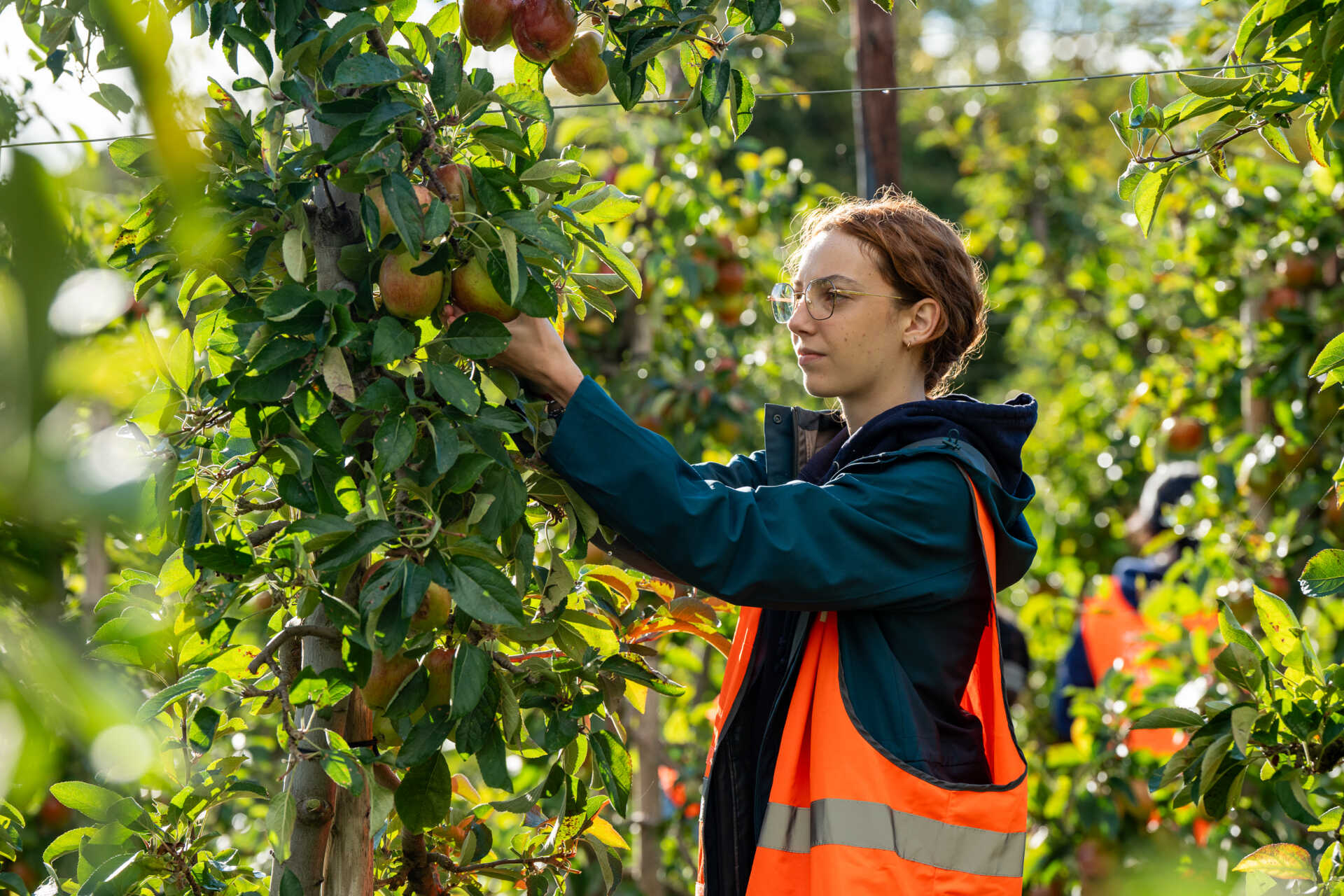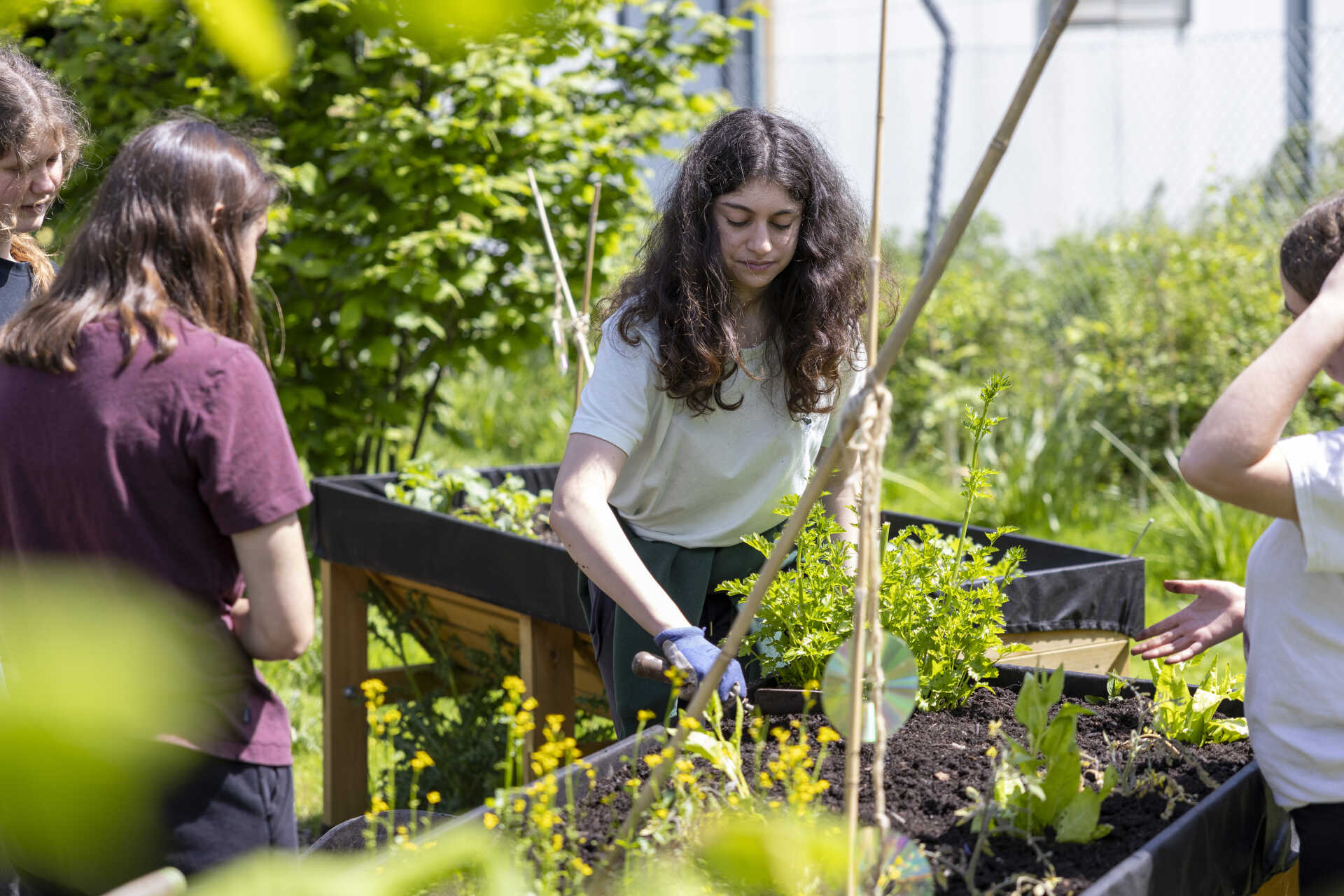
The theme for World Food Day 2024 is "Right to foods for a better life and a better future".
As the world’s first Right to Food university, we are committed to tackling food insecurity and ensuring EVERYONE has the access to affordable, healthy and sustainable food.
This means using our research and expertise to transform the global food system and supporting other institutions to help bring about change but it is starts at home, on our campuses.
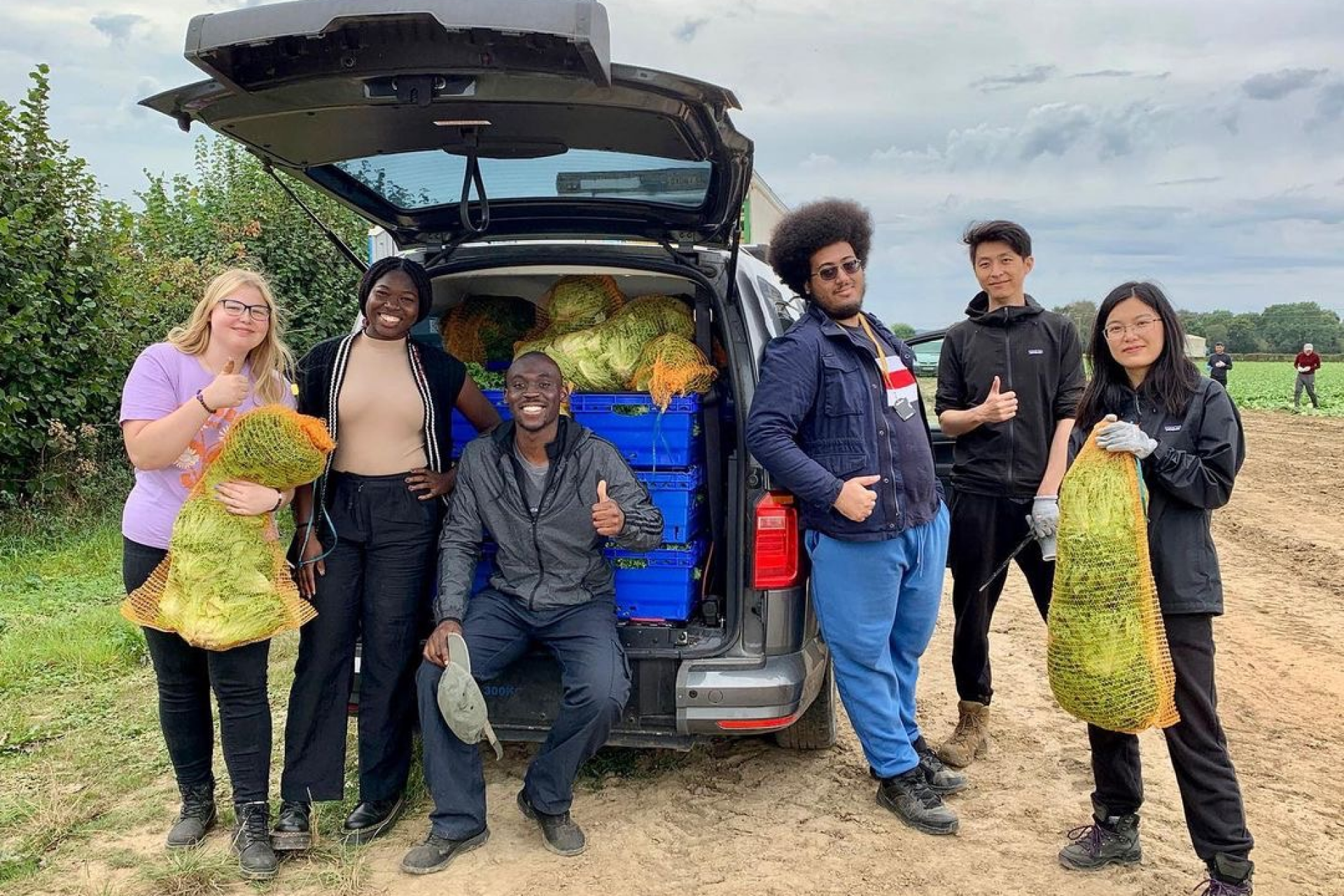
From our Gleaning collective to studying new Right to Food modules at Kent, meet the students who are at the forefront of the initiative.
At Kent, we are aware that too many of our students are still feeling the pinch, particularly when it comes to food. Our own cost of living survey highlighted that, at the time, 49% of our students had experienced food insecurity in the past month – something we are working hard to change.
In November 2022, we launched our cost-of-living meal, giving staff and students access to an affordable and nutritious hot meal on campus. In September 2024 we sold our 100,000th meal and know that it provides valuable support to students struggling with the cost of living.
We continue to work with our Student Union and wider student body to make changes where needed to ensure the meal reflects their wants and needs.
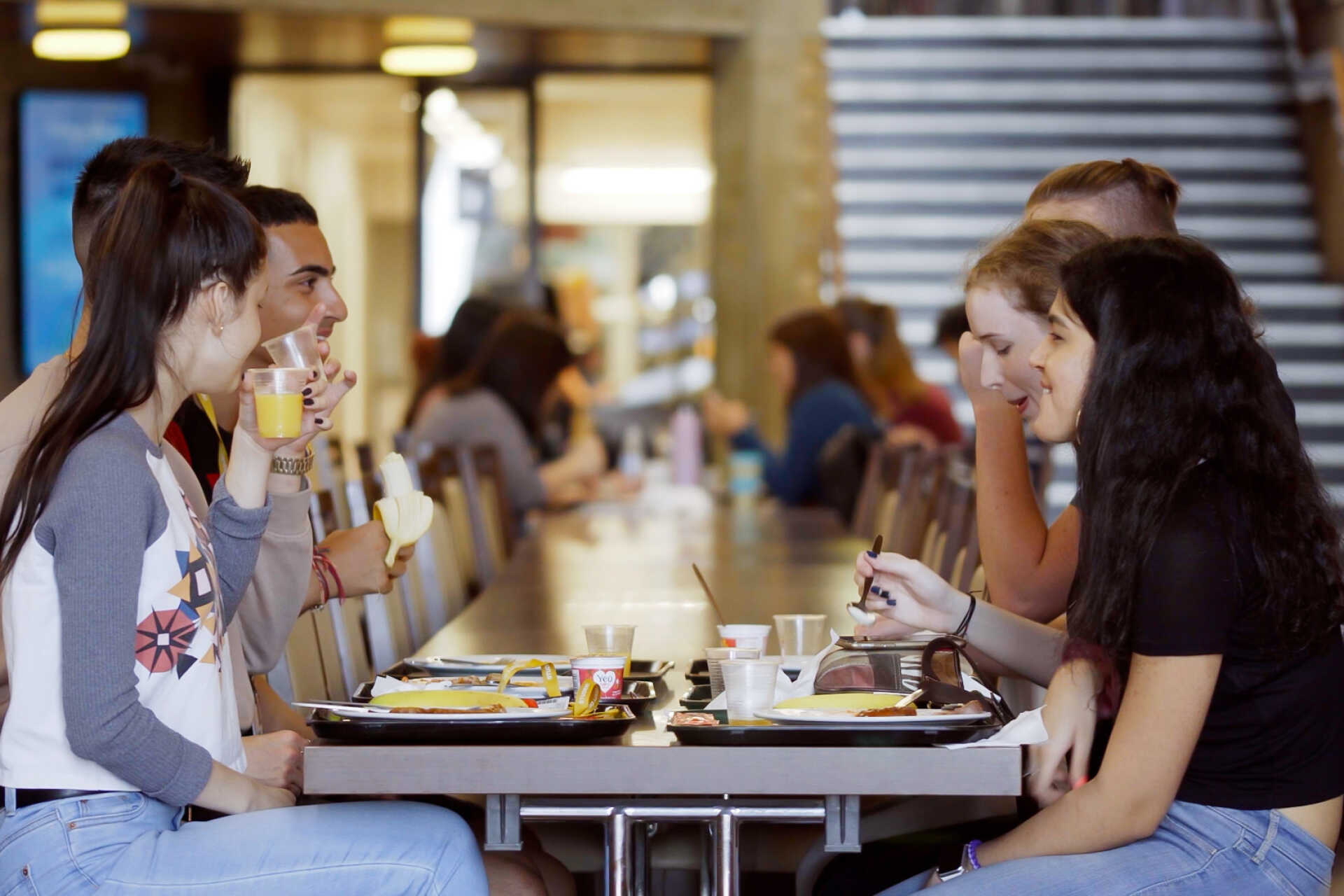
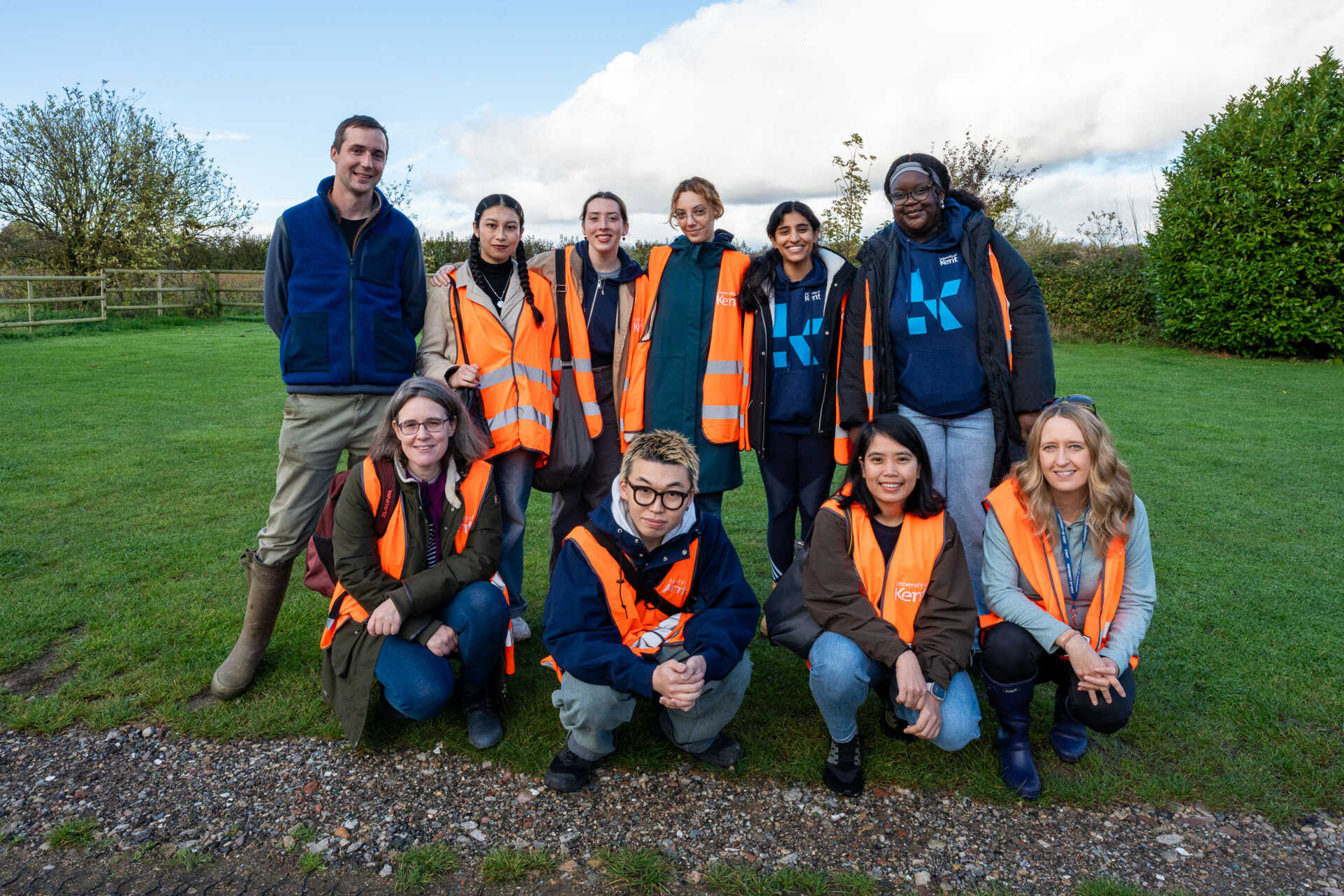
Glean Big, Make a Difference
ResLife are very excited to be teaming up with Fareshare this year with their gleaning project. Gleaning is where a team of volunteers visits local farms and picks excess produce that will just be wasted otherwise. This food is then taken to food banks where it can be distributed to those who may be struggling in the current economic crisis.
We know there is more to be done on tackling food insecurity – not just for our students and staff, but the wider community – so the work continues more broadly.
Our Right to Food Missions are designed to help tackle the problems with the global food system to ensure a fairer and more sustainable future.
As we head towards our second anniversary we are look forward to rolling out our learnings to other institutions, so that together, we can tackle food insecurity on more campuses and in more communities in the future.
